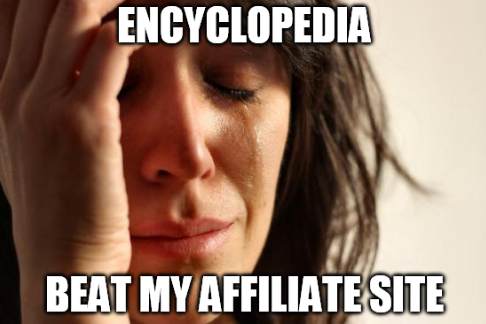There are many reasons why Wikipedia represents a flawed model for publishing accurate information. These 10 reasons critique Wikipedia and will hopefully provide some impetus for improvement.
- The theory that everyone’s contributions to a topic are equally valuable sounds good, but is clearly nonsense.
- Wikipedia has no way of recognizing expert knowledge over inexpert knowledge. The members with most authority are the ones who have spent the most time working on Wikipedia – their “knowledge” is often just a combination of Google results and prejudice.
- Wikipedia gives people’s opinions undeserved authority by virtue of its search engine rankings and authoritative presentation and identity.
- Too many people (especially students) who use Wikipedia believe the articles will be reliable – and Wikipedia’s stance as an encyclopedia encourages this misguided belief.
- At the core of Wikipedia is the idea that bad articles will eventually be edited by the community until they become good (i.e. factual and well-written). In fact, they are likely to be edited until all but one member loses interest or gives up trying.
- “If you don’t like an entry, you can fix it yourself”(1). But I came here for information, not to provide it.
- “Wikipedia pages have become increasingly complex and Wikipedia doesn’t support a WYSIWYG editor.”(3) This and other technical aspects of Wikipedia effectively prevent many people with valuable knowledge from participating.
- The lack of any required standard of writing, error-checking and fact-checking means that many Wikipedia entries are poorly-written and contain factual inconsistencies.(1)(2)(4)
- Wikipedia articles only ever skim the surface. Which is fine – but they don’t ever indicate what might be below the surface either, leading people to believe that everything is as simple and uncontroversial as Wikipedia says it is. (2)
- Wikipedia entries are meant to be “notable” – but only Wikipedia’s (self-appointed) editors have to think so. Is Stroyent really important?
References
1. Wikipedia founder admits to serious quality problems • The Register
2. The Faith-Based Encyclopedia, Robert McHenry
3. Wikipedia’s Technological Obscurification: Three ways Wikipedia keeps 99% of the population from participating, Jason Calacanis
4. The Amorality of Web 2.0, Nicholas Carr



